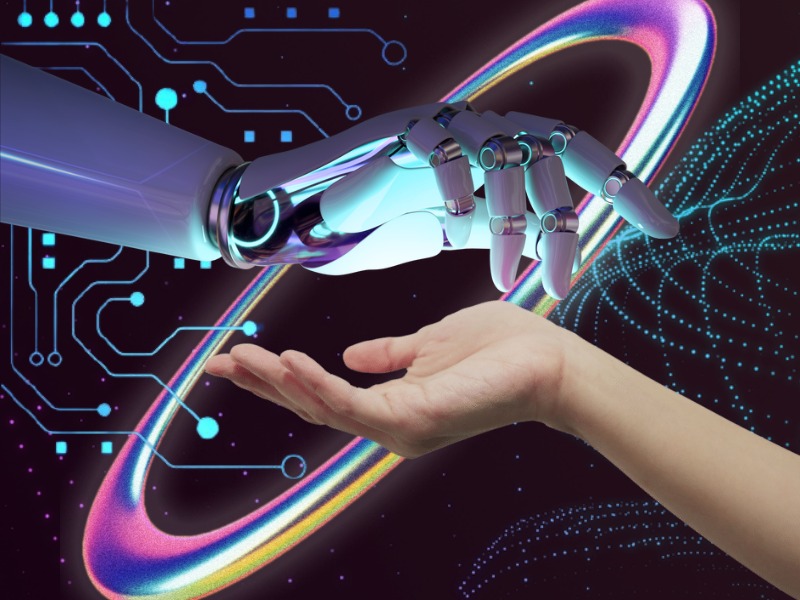Artificial Intelligence (AI) has rapidly evolved over the past decade, transforming industries and impacting various aspects of our lives. As AI continues to advance, the ethical implications of its applications become increasingly important. In this article, we will explore the complex intersection of AI and ethics, highlighting the need for ethical guidelines to steer the future of technology.
Understanding AI’s Influence
AI in Everyday Life
AI-driven technologies are now a part of our daily routines, from virtual assistants on our smartphones to recommendation algorithms on streaming platforms. These technologies analyze vast amounts of data to provide personalized experiences.
AI in Healthcare
In healthcare, AI aids in diagnosing diseases, optimizing treatment plans, and predicting patient outcomes. While it enhances medical capabilities, ethical concerns such as data privacy and algorithm bias arise.
AI in Autonomous Vehicles
Self-driving cars utilize AI for navigation and decision-making. Ethical dilemmas emerge when considering how these vehicles prioritize the safety of passengers versus pedestrians.
AI in Criminal Justice
AI tools assist in predicting criminal behavior and informing sentencing decisions. Concerns about fairness, accountability, and transparency surround the use of AI in the criminal justice system.
Ethical Challenges
Bias and Fairness
AI algorithms can inherit biases present in training data, leading to unfair outcomes. It is essential to address bias to ensure equitable AI applications.
Privacy and Data Security
The collection and use of personal data by AI systems raise privacy concerns. Striking a balance between innovation and privacy protection is crucial.
Accountability and Transparency
As AI systems become more autonomous, determining responsibility for their actions becomes complex. Transparent AI systems are necessary for accountability.
Job Displacement
The automation of jobs by AI and robotics poses a significant societal challenge. Preparing the workforce for this shift is an ethical imperative.
AI Ethics Frameworks
The IEEE Global Initiative
The Institute of Electrical and Electronics Engineers (IEEE) developed a framework for ethically aligned AI. It emphasizes prioritizing human well-being and respecting human rights.
The Asilomar Principles
Researchers at the Asilomar Conference on Beneficial AI proposed guidelines that prioritize long-term safety and the avoidance of harmful uses of AI.
The EU’s Ethics Guidelines
The European Commission’s guidelines emphasize human agency, accountability, and the avoidance of biases in AI systems.
The Role of Government and Industry
Regulatory Initiatives
Governments worldwide are taking steps to regulate AI, focusing on transparency, accountability, and data protection. Regulations like the General Data Protection Regulation (GDPR) in the European Union set standards for data privacy.
Industry Responsibility
Tech companies are recognizing their responsibility to develop and deploy AI ethically. Initiatives include internal ethics boards and AI impact assessments.
Public Engagement
Engaging the public in discussions about AI ethics is vital. Citizens should have a say in how AI is used and governed.
Future Directions
Ethical AI Research
Continued research into ethical AI algorithms and practices is essential. This includes reducing biases, ensuring transparency, and developing ethical AI decision-making processes.
Education and Awareness
Educating individuals about AI and its ethical implications is crucial. Society must be prepared to engage with AI technologies critically.
Multidisciplinary Collaboration
Collaboration between technologists, ethicists, policymakers, and the public is key to shaping a future where AI aligns with human values.
Conclusion
The intersection of AI and ethics is a critical juncture that will shape the future of technology. Ethical guidelines and frameworks must evolve alongside AI advancements to ensure that these technologies benefit humanity and align with our values. By addressing bias, ensuring transparency, and fostering public engagement, we can navigate the ethical challenges posed by AI and guide it toward a future that prioritizes human well-being and respects our ethical principles.

